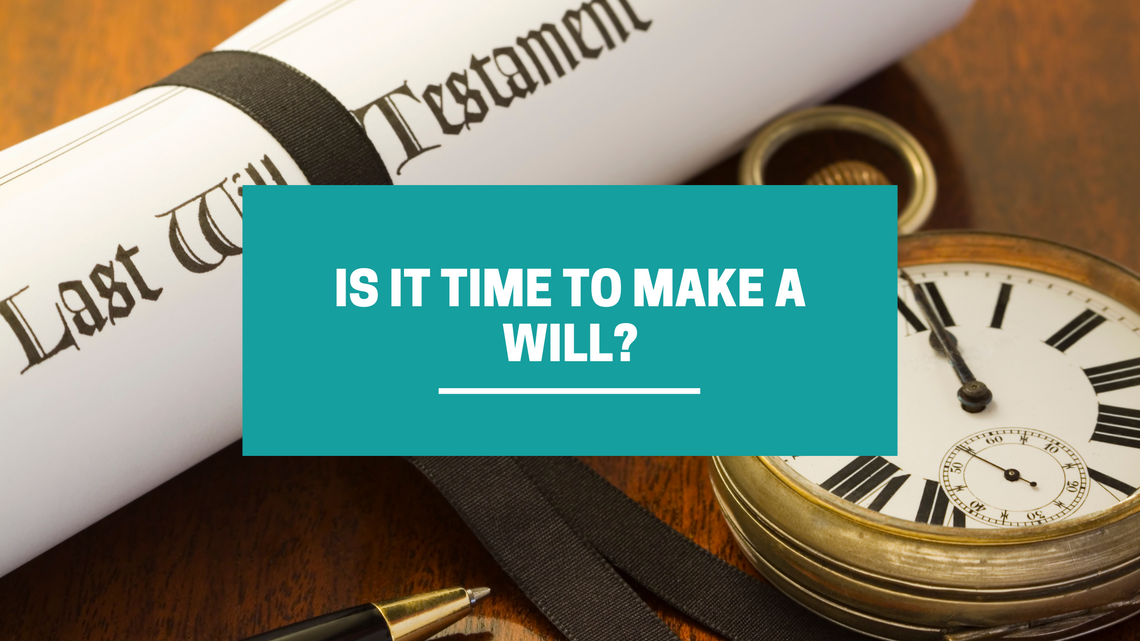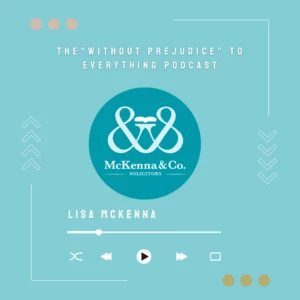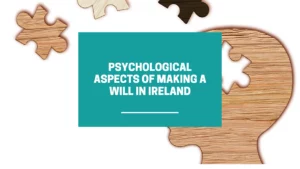With Christmas approaching writing your will is not likely to be the first thing on your mind but it is something to be mindful of. Society today often talks about living in the moment bur sometimes future planning is essential.
Many people say that they should draft a will at some point but will continuously place the idea on the back burner for another day because they don’t want to think about the future. This is a completely natural reaction, but it could be time to take the plunge and finally remove this task from your checklist.
This piece explores the importance of drafting a will in Ireland and the correct procedure for doing so.
Wills – What are they and How do you make one?
So, what is a will? A Will is a legal document that sets out the destination of an individual’s assets upon them passing away. In Ireland, the writing of a Will is governed by the Succession Act 1965. To create a valid Will according to the Act, it must be in writing and signed by the person who wishes to create the Will (known as the testator). The testator will sign their Will in the presence of two witnesses, both of whom will also sign the document. So, in theory, even a Will that is written on the back of a receipt or on a chocolate bar wrapper can be binding once all formalities are followed! To make a Will, a person must be over the age of 18 or married, and must be of ‘sound disposing mind’ at the time of writing the document for it to be legally enforceable.
Importance of Having a Will
The reasons for making a Will all tend to revolve around the idea of certainty.
Certainty as to Destination of Belongings: Arguably, the most important reason for writing a Will is to ensure that the testator or testatrix can be certain of what will happen to their belongings when they die. Everyone has something of financial or sentimental that they would like to ensure will land into the correct hands. You can draft an enforceable will on your own once it is in writing, signed and witnessed. However, it is beneficial to enlist the help of a solicitor who can follow you through the legal process. The solicitor will ensure that all formalities are followed, and that the wording of the Will will not lead to the document being struck down for uncertainty or difficulties in its interpretation.
Appointment: Another advantage of drafting a Will is that it gives you the opportunity to appoint a trustworthy or reliable person as your executor or personal representative. This person is responsible for applying for a Grant of Probate from The Probate Office upon your death, and distributing your estate in accordance with your wishes. A solicitor may also represent you in this regard if you so wish. On a similar note, where you have a young family, drafting your Will gives you an opportunity to appoint a trustworthy guardian for your kids so that you can rest in the knowledge that they will be looked after if you pass.
Forward Planning and Tax Reasons: Writing a Will gives you the opportunity to sit down and make a list of your assets. This will not only allow you to financially plan for your future but also influence the future of the beneficiaries under the Will. Having your assets all in one place allows you to smartly divide your estate in a way that will prevent your beneficiaries from having to pay a high amount of inheritance tax for example.
Residuary Clauses: Even where you fail to account for all of your assets, a residuary clause can be inserted into the Will to make provision for any outliers (or residue) in your estate so that they can be distributed as you wish.
Intestacy – What will happen if you don’t make a Will?
What happens if you die without a Will? This scenario is known as intestacy. Intestacy has its own set of complex rules under the 1965 Act as to the disposal of a person’s estate. Under these rules, a person’s estate is automatically passed to their next of kin (a spouse or closest blood relative). For example, where you are married or in a civil partnership, all of your estate will be transfered to your surviving spouse automatically upon your death. More complicated scenarios arise depending on your individual circumstances. Family trees may have to be traced to find you next surviving blood relative.
An intestacy situation may not reflect the deceased wishes and in some circumstances could result in your belongings being devised to a blood relative that you have never met. Where no blood relative exists, the Irish State will take ownership of the assets as ‘Ultimate Successor”. Intestacy only caters for traditional categories of relationship and does not take into account that Ireland today has many blended families. So, for example, if you wish to leave something to a friend or an (unadopted) step child and do not make a Will, intestacy will not take this relationship into account.
In conclusion, drafting a Will is beneficial as it is a form of ‘security blanket’, giving the testator peace of mind and certainty that their exact wishes will be carried out when they die. Many people struggle to take steps to think about their future but unfortunately, we all need to take a leap of faith once in a while. Maybe 2023 will be the year for yours?
Please note that the content of this blog does not amount to professional advice. Legal advice should be sought in respect of specific queries. This update is provided on the basis of information available as at November 2022.
The author of this blog is Jonathan Delany and Lisa McKenna, please contact our Probate Department if you have any questions on making of your Will on 01-4854563.





